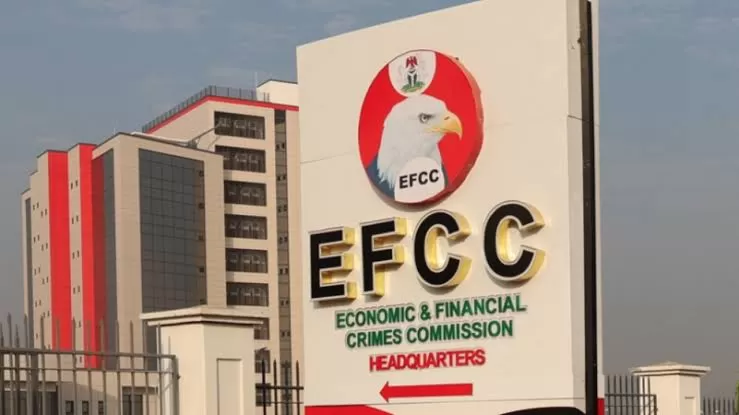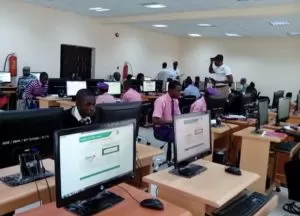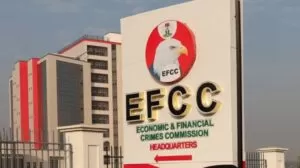EFCC’s Case Against Martins Vincent Otse: A Detailed Examination

The Economic and Financial Crimes Commission (EFCC), Nigeria’s premier anti-corruption agency tasked with combating economic and financial crimes, has recently drawn significant public attention with the arrest of Martins Vincent Otse, popularly known as VeryDarkMan, on May 2, 2025. The arrest, which has sparked widespread debate and protests, is rooted in what the EFCC describes as serious allegations of financial malfeasance leveled against Otse. This article delves into the details of the case, the EFCC’s stated rationale, the legal framework guiding the process, and the broader implications for public discourse in Nigeria.
Background of the Case
According to an official statement from the EFCC, Otse’s arrest stems from a series of petitions accusing him of various financial crimes. The agency, in line with its mandate to investigate economic and financial misconduct, extended multiple invitations to Otse to address these allegations. These invitations were reportedly sent through his known addresses and communication channels, but Otse allegedly failed to honor them. The EFCC’s statement emphasizes that the petitions contain “grave allegations of financial malfeasance” that the agency cannot overlook, necessitating further action.
On May 2, 2025, Otse was apprehended while visiting a GTBank branch in Abuja. The EFCC clarified that his detention was not a reaction to his outspoken criticism of the agency’s operations, which he has frequently aired on social media platforms. Instead, the agency insists that the arrest was strictly tied to the financial crime allegations outlined in the petitions. The EFCC has also noted that any attacks or criticisms directed at its operations by Otse are matters for other relevant law enforcement agencies to address, not the basis for his current detention.
Legal Framework and EFCC’s Actions
The EFCC operates under the Economic and Financial Crimes Commission (Establishment) Act of 2004, which grants it broad powers to investigate and prosecute economic and financial crimes, including fraud, money laundering, and related offenses. In Otse’s case, the agency followed legal protocols by obtaining a remand order to hold him in custody while investigations continue. This is a standard procedure for suspects under investigation for serious crimes, ensuring that the agency can conduct thorough inquiries without interference.
The EFCC has also offered Otse administrative bail, a common practice that allows suspects to secure temporary release while investigations are ongoing. However, his release is contingent upon fulfilling the bail conditions, which have not been publicly disclosed. The agency’s statement underscores its commitment to due process, asserting that it has a “lawful right” to detain Otse, like any other suspect, during the investigation phase.
The EFCC has further assured the public that once its investigations are concluded, formal charges will be filed against Otse if the evidence warrants it. This aligns with the agency’s standard operating procedure, where investigations precede prosecution to ensure that cases are built on solid evidence.
Public Reaction and Controversy
The arrest of Martins Vincent Otse has ignited a firestorm of reactions across Nigeria, particularly on social media platforms like X, where Otse has a significant following. Known for his bold and often controversial commentary on social issues, Otse, under the moniker VeryDarkMan, has built a reputation as a vocal critic of corruption and institutional inefficiencies, including those of the EFCC. His supporters view his arrest as an attempt to silence dissent, with some alleging that the EFCC is targeting him for his outspoken criticism of the agency.
In Abuja, protests erupted following his detention, with demonstrators demanding his immediate release. Posts on X and reports from various media outlets highlight accusations that the EFCC’s actions are politically motivated or intended to suppress Otse’s activism. These sentiments reflect a broader public skepticism about the motives of anti-corruption agencies in Nigeria, where allegations of selective prosecution and abuse of power have long been debated.
The EFCC, in response, has called for calm and urged Nigerians to refrain from speculating about its motives. The agency acknowledges the “passion, enthusiasm, and torrential reactions” to its operations but insists that it must be allowed to carry out its duties “without fear or favor.” The EFCC’s statement emphasizes that its actions are guided by evidence and legal mandates, not personal vendettas or external pressures.
Otse’s Criticism of the EFCC
The EFCC’s statement acknowledges Otse’s “unguarded attacks” on its operations, describing such conduct as “condemnable.” While the agency clarifies that these criticisms did not inform his arrest, they have added a layer of complexity to the case. Otse has previously used his platform to question the EFCC’s transparency, effectiveness, and handling of high-profile cases, often accusing the agency of inefficiencies or selective enforcement. These criticisms have resonated with segments of the Nigerian public, who share similar concerns about the country’s anti-corruption efforts.
However, the EFCC maintains that any issues related to Otse’s public statements are outside the scope of the current investigation. Instead, the agency has referred such matters to other law enforcement bodies, signaling that it intends to focus solely on the financial crime allegations at hand.
Broader Implications
The case against Martins Vincent Otse raises important questions about the balance between free speech, activism, and accountability in Nigeria. Otse’s arrest underscores the tensions that can arise when individuals use their platforms to challenge powerful institutions, particularly those tasked with upholding the law. While the EFCC insists that its actions are lawful and evidence-based, the public’s reaction highlights a deep-seated mistrust in the motives of anti-corruption agencies.
For the EFCC, this case is an opportunity to demonstrate its commitment to transparency and fairness. By concluding its investigations promptly and presenting clear evidence to support any charges, the agency can address accusations of overreach and reinforce public confidence in its operations. Conversely, any perceived mishandling of the case could further erode trust in Nigeria’s anti-corruption framework.
For Otse and his supporters, the case is a test of the limits of free expression in Nigeria. As a self-styled social critic, Otse has positioned himself as a voice for the marginalized, often taking on powerful figures and institutions. His detention, regardless of the outcome, will likely fuel debates about the role of activism in holding public institutions accountable.
Conclusion
The EFCC’s case against Martins Vincent Otse is a complex and multifaceted issue that touches on themes of justice, free speech, and institutional integrity. The agency’s decision to arrest and detain Otse is based on allegations of financial crimes, supported by a legal framework that allows for such actions during investigations. However, the public’s reaction, fueled by Otse’s prominence as a critic of the EFCC, has transformed the case into a broader referendum on the agency’s credibility and motives.
As the EFCC moves forward with its investigations, the eyes of Nigerians—and particularly Otse’s supporters—will be on the agency to ensure that due process is followed. The promise to file charges upon the conclusion of investigations places additional pressure on the EFCC to deliver a transparent and evidence-based outcome. In the meantime, the case serves as a reminder of the delicate balance between combating financial crime and respecting the rights of individuals in Nigeria’s evolving democratic landscape.







